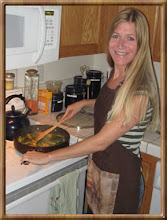Community supported agriculture (CSA) is a farming concept that has been gaining momentum since its introduction to the United States in the mid-1980s. The CSA concept was basically initiated in the 1960s in Japan and Switzerland, where consumers who were interested in obtaining fresh, wholesome, and safe food joined into economic partnerships with farmers seeking stable markets for their crops.
According to Community Supported Agriculture (CSA): An Annotated Bibliography and Resource Guide, A CSA basically consists of a community of individuals who pledge support to a farm operation so that the farmland becomes the community's farm, with the growers and consumers providing mutual support and sharing the risks and benefits of food production. Typically, members or "share-holders" of the farm pledge in advance to cover the anticipated costs of the farm operation and farmer's salary.
The participating members receive shares of the farm's harvest throughout the growing season, as well as the satisfaction gained from reconnecting to their food source and the land that it is grown on. Members of the CSA also share in the risks of farming, including poor harvests due to unfavorable weather or pests. By direct sales to its "share-holders" who have provided the farm with working capital in advance, growers receive better prices for their crops, gain some financial security, and are relieved of much of the burden of marketing.
Most CSAs offer a wide variety of seasonal produce, herbs, and other goodies that vary with the size and location of the farm. A number of CSAs are able to provide a full array of farm produce, including shares in eggs, meat, milk, baked goods, and wares by local artisans. Some farms offer a single commodity, or team up with other farms aligned with the CSA philosohpy so that members receive goods on more of a year-round basis.
The Community Shared Agriculture program that I am currently connected with is Laguna Farm, which is located in Sebastopol, CA. This farm has been providing organic produce to Sonoma county for over 20 years and is run by farmer Scott Mathieson. In aligning with the CSA concept, Laguna Farm offers a very real way for its members to foster a direct relationship with the land and the farmers who grow their food. This type of experience serves as a highly desirable alternative to the conventional way of supermarket shopping while providing members with an abundant supply of fresh, organic and sustainably produced products. Additionally, Laguna Farm is involved in a variety of alternative and educational programs such as solar power, veggie oil co-op, green building, a composting program, Earth Camp Collective, and a local farmer's market.
According to the Laguna Farm website, "Our method of growing stewards the earth as a living system and connects us with nature. Community support connects us with each other. We feel that living and practicing agriculture based on this interconnectedness can lay the foundation for physical, cultural, intellectual and spiritual growth." All I need to say about that is, who wouldn't want to be a part of such a wholesome, valuable and wonderfully rewarding program..........
Saturday, April 5, 2008
Subscribe to:
Post Comments (Atom)




2 comments:
The end of mass produced food could be ending very soon. We will have no choice but to enjoy local home grown food, simply because fossil fuels will become very scarce. There will simply be no way for the food to ship to the market, to say nothing of the lack of petroleum refined fertilizers that will no longer enrich the soil.
I'm looking forward to the day when I don't have to listen to internal combustion engines all the time. I hate being inside cars. They are like torture cells with windows showing disgusting displays of greed and hatred. It will be great day when we walk to places without it being a form of exercise. I believe we will be able to respect the earth again.
I would like to suggest reading "World Made By Hand" by James Kunstler. It's a vision of a future without oil, where we grow our own food and attempt to live together in peace. I donated my evaluation copy to the library on Monday. I just noticed there are 16 requests for it and zero copies available. Probably the staff is checking it out.
James Kunstler has a lot to say about a lot of subjects that people do not want to hear about. He makes Al Gore's "An Inconvenient Truth" look like a "Tiptoe Through The Tulips".
Visit the dark side of the real future America. Go to http://jameshowardkunstler.typepad.com
Post a Comment